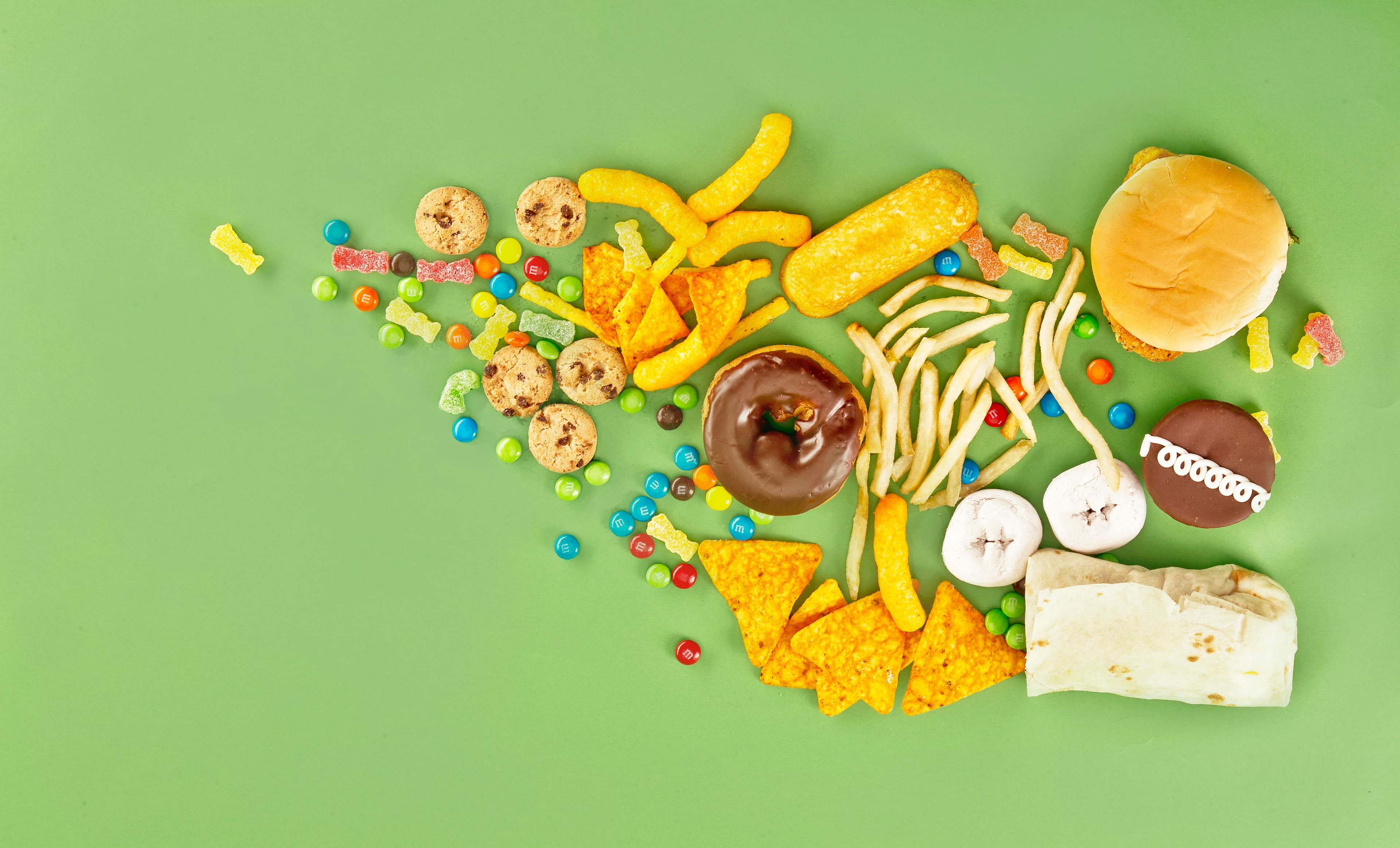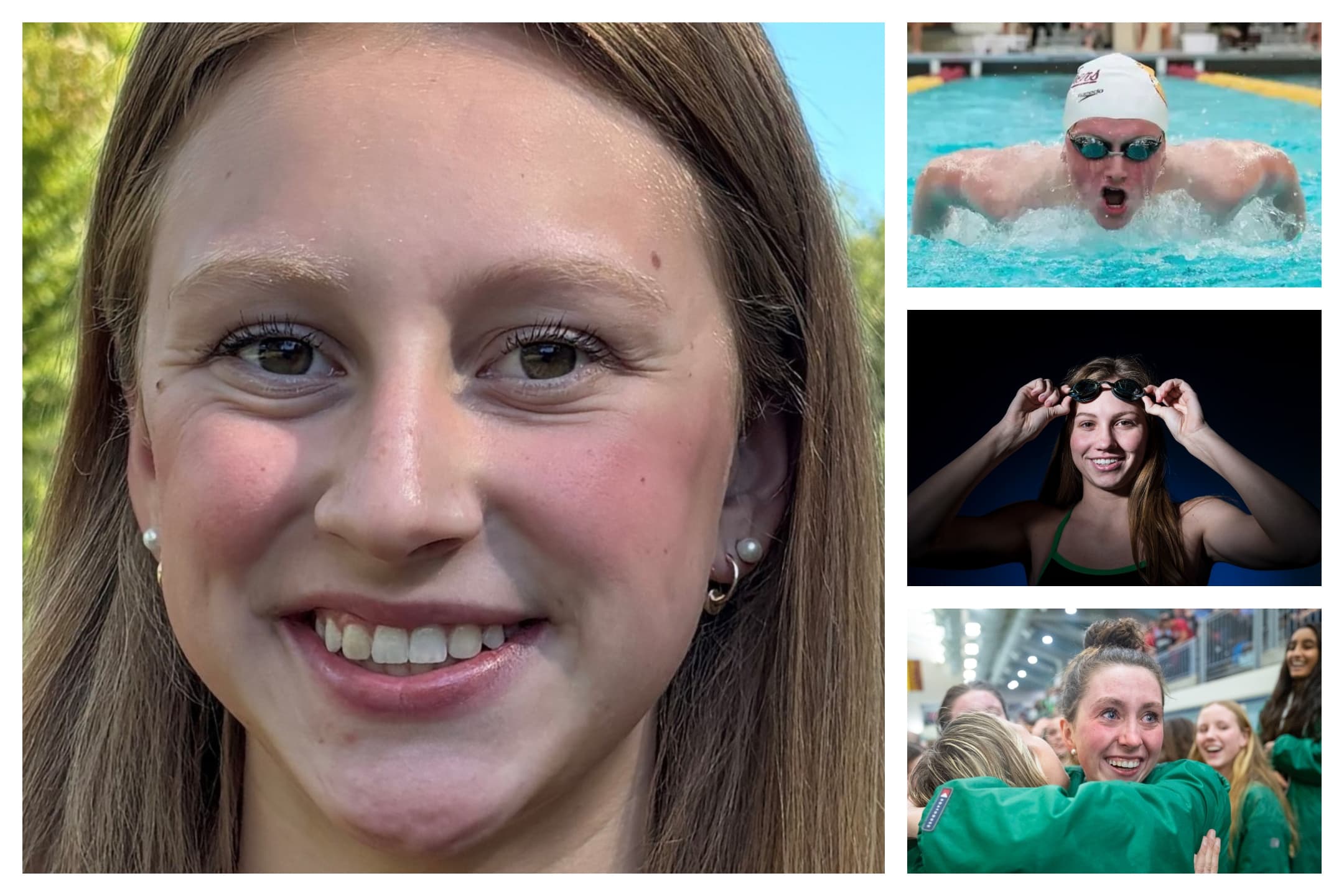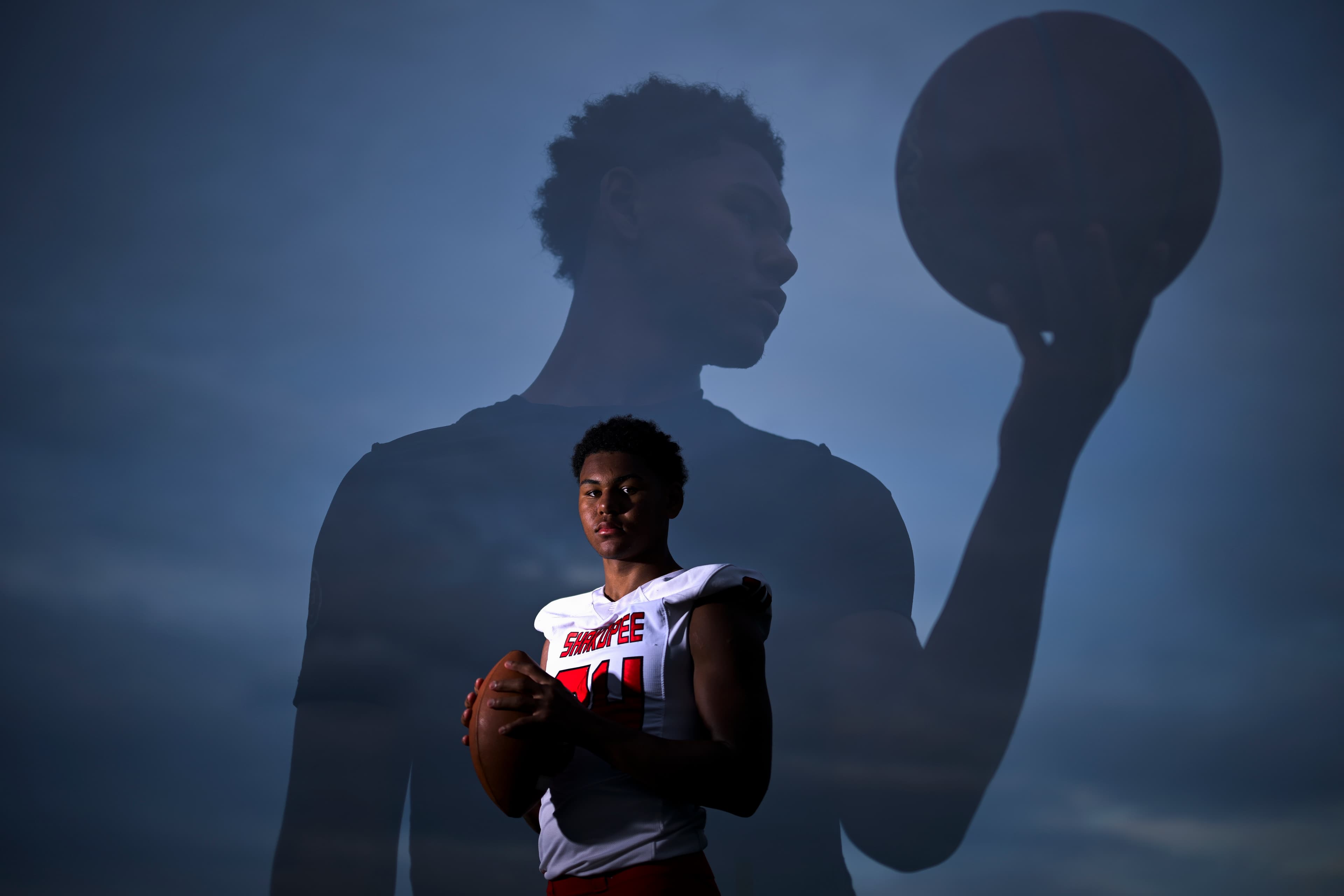We asked high school athletes what they eat, and asked dietitians what they should eat
Carbs and protein that boost energy levels and help with recovery are good ideas, as is having planned snacks and meals — even setting timers — and hydrating continuously.

By Cassidy Hettesheimer, Joe Christensen, Marcus Fuller and Jim Paulsen
The Minnesota Star Tribune
Deciphering fact from fiction on social media is challenging for a number of topics, but especially nutrition and dieting.
For high schoolers, copying a trend or taking advice from uncertified nutrition and fitness “experts” could diminish their ability to train and condition, or worse, compete effectively with their schoolmates.
“We always encourage [athletes] to look at the credentials of the individual that they’re finding nutrition information from,” said Rachel Gorham, a certified specialist in sports dietetics for Twin Cities Orthopedics and Training HAUS. “I always encourage them to check and make sure that [person] is a registered dietitian and, even better, a certified specialist in sports dietetics. We really try to teach athletes to be very suspicious or almost kind of skeptical.”
The decision to commit to a healthy and balanced diet translates to success, according to one Twin Cities coach.
“Our kids have actually done a pretty good job with it,” said Maple Grove football coach Adam Spurrell, whose team won the Class 6A state championship in 2024. “That’s why we have kids that had success. They physically committed themselves to the weight room and [nutrition]. That’s why I think we have kids go on to the higher levels.”
With high school sports competitions set to begin this week across Minnesota, we decided to ask athletes what they routinely consume to help them perform at their best but also what to stay away from, and what’s the worst advice they’ve seen online when it comes to fueling their bodies.
Kaelyn Bjorklund, Lakeville South volleyball
“Just eat breakfast each morning with something nutritious but not too heavy. Scramble up some eggs and eat a protein bar, especially before workouts.
“Make sure you always have protein after a workout, too. That’s always important.”
Jett Feeney, Moorhead football
“I see a lot of ... people just drinking raw eggs — and just mixing up raw eggs and drinking it raw. So that’s probably the worst advice I’ve seen online."
Larry Smith Jr., Brooklyn Center football
Related Coverage
“Eat a lot of fruits. Fruits before a game. Don’t eat heavy. I like that, because my first year before the first game, I ate like a lot of food and I didn’t have no time to get it off. So, I was feeling heavy that game. Ever since then I eat light … like fruits, and then all through the day I drink protein. That gets you going and then you feel light on your feet."
Romi Chlebecek, Lakeville South volleyball
“Eating a good breakfast, lunch and dinner is important. When I haven’t eaten a great meal, I don’t feel very well. So getting that fuel before playing and drinking Gatorade or something to get electrolytes afterward after you burn a bunch of calories is good.”
Maddie Gullickson, Wayzata cross-country
“Three and a half hours out before my race, I’ll have a peanut butter and jelly, and I like to have some nuts, like almonds or cashews or something. And then you eat some more snacks, eat [granola] balls … [or] dried fruit bars. Then, an electrolyte drink, like, three hours out — Liquid IV or Nuun or LMNT, stuff like that."
Elle Utecht, Lakeville South volleyball
“As much as possible during the season you should stay away from a bunch of carbs, candy, sugar and those kinds of things. Just have balanced meals. And I’ll have eggs every morning with yogurt and toast. Not something heavy but that gives you energy to start the day. And before we play as well.”
Tyler Walker, Moorhead football
“For me, it was loading your protein shakes and stuff like that, just putting, like everything. One time I tried it with eggs, milk, spinach, all that kind of stuff. It was just disgusting. I didn’t like that at all.”
Grace Hertaus, Lakeville South volleyball
“We eat team dinners, so that helps. At school [the underclassmen] eat with us a lot, so they can see what we’re eating and try to do that, too. They see that we’ve been through it and want to follow what we do. No candy and fast food. No Starbucks.”
Expert Q&A: Do’s and don’ts
Responses from Rachel Gorham, Twin Cities Orthopedics and Training HAUS
What are some healthy carbs you recommend for proper fueling?
“Before training we would recommend easy digestible carbohydrates. So like pretzels, graham crackers, sometimes people do dry cereal. Fruits are a great option, too. So bananas, applesauces, those are easy go-to options. And then there’s some sports products as well. There’s some like chews or goos [squeezable gels], those kinds of things if somebody has a really sensitive stomach that are formulated for athletes.”
What about after workouts?
“Post-training is a big opportunity to make sure that the athlete is starting to recover their muscles, rebuild and re-energize, so we typically think of three concepts. We want carbohydrates to re-energize what they just lost during training and then protein to make sure that we’re rebuilding those muscles and then fluid to rehydrate. Examples of that, a quick, easy one, is like chocolate milk. It has the carbohydrates, the protein and the fluid already all together and it’s quick and easy. Some people will do trail mix with some dried fruit. Some people will do beef jerky, turkey jerky and crackers, something that they can kind of have in their bag or even on the car ride home."
What are the biggest misconceptions you’ve seen when it comes to what’s best to eat before practice or after practice?
“Misconception number one would be ‘I don’t have to eat before I go to practice.’ A lot of my athletes will say ‘It hurts my stomach’ or ‘I’m not hungry in the morning before practice and so I don’t have to eat and I’ll be just fine.’ Research shows that that can put us at a higher risk for injury because especially if we’re sleeping well the night before, our body’s utilizing a lot of that energy or those calories while we sleep. And then we wake up in the morning, we try to train on top of that and we’re putting our body at a pretty big risk when we’re adding stress to our muscles and our tendons and those kinds of things. Or, ‘I can just grab my caffeine, my energy drink and go into practice and that’s gonna be my “energy”.‘ And we know that caffeine is not true energy. We get energy from carbohydrates and fats.
“The second [misconception] is just walking out with like a protein drink. ‘Yep, I got my protein in right after my exercise. So I’m good, right? I’ve kind of checked that recovery box?’ We know from a lot of research, there’s a lot of science behind recovery that within 60 minutes after I exercise, I want to make sure I get that carbohydrate and protein combination.”
. . .
Responses from Dr. Renee Korczak, assistant teaching professor at the University of Minnesota Department of Food Science and Nutrition
What are the best food items and beverages for high school athletes to consume before practice?
“Depending on what time a teenager might wake up versus what time they practice will determine what types of foods and what I call fuel in their body. If let’s say they wake up at 9 o’clock in the morning and practice at 12 or 1 o’clock, they have time for a really well-balanced meal. That three- to four-hour window is enough to digest and absorb food, make sure the blood is flowing to the working muscles during practice and not to the gut, right? Because there they would be working harder to break down food. So, three to four hours ahead of time, you can have a pretty well-balanced meal, things like protein, especially high-quality protein.
“High-quality protein means that that protein source contains all of the essential amino acids, really important for teenagers to fuel and support muscles and help them recover from exercise, no matter what it is, soccer, tennis, etc. Protein comes in many different forms and from many places, so both animals and plant sources offer protein.
“Dairy is a great source of high-quality protein, things like milk, Greek yogurt, cottage cheese, cheese sticks, all of those things would provide a really good source of protein for teenagers, and then you have your meats, chicken, lean beef, pork, all of those things definitely fit in the context of protein. For plant sources, things like soy, there’s a lot of different seeds that offer both some protein and some healthy fat and that can definitely fit into the context of a healthy diet for a teenager.”
And for recovery?
“For recovery, you want to really make sure you’re focusing on the right blend of carbohydrates and protein to replenish those glycogen stores that you may have burned through to really kind of recover the muscle.
“Really simple foods can help. Things like chocolate milk are great for recovery because the sugars that are naturally found in milk provide some carbohydrate plus you get the protein.”
How important is it to stay away from unlicensed professionals giving advice on social media?
“I always advise and educate athletes of all ages to just look at the person’s credentials. If they’re telling you to fast and follow a ketogenic diet, why are they saying that? Do they have the science and the credentials to be able to give that advice? You want to look for someone who has, if you’re a dietitian, you want to look for those RD or RDN credentials and then having an advanced degree or training in nutrition, exercise science, all of those health-related fields are really important.
“Looking for MS, PhD, their medical doctor, MD or DO, which is a doctor of osteopathy, but for nutrition specifically, they should be looking for the RD or RDN credential.”
About the Authors
Cassidy Hettesheimer
Sports reporter
Cassidy Hettesheimer is a high school sports reporter at the Minnesota Star Tribune.
See MoreJoe Christensen
Strib Varsity Enterprise Reporter
Joe Christensen is our Strib Varsity Enterprise Reporter and moved into this position after several years as an editor. Joe graduated from the University of Minnesota and spent 15 years covering Major League Baseball, including stops at the Riverside Press-Enterprise and Baltimore Sun. He joined the Minnesota Star Tribune in 2005.
See MoreMarcus Fuller
Reporter
Marcus Fuller is Strib Varsity's Insider reporter, providing high school beat coverage, features, analysis and recruiting updates. He's a former longtime Gophers and college sports writer for the Minnesota Star Tribune.
See MoreJim Paulsen
Reporter
Jim Paulsen is a high school sports reporter for the Minnesota Star Tribune.
See More



Comments